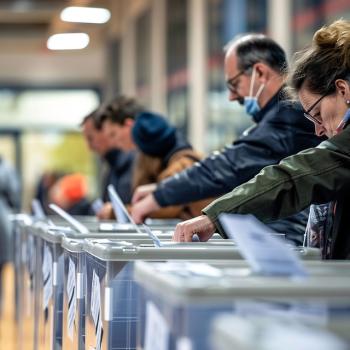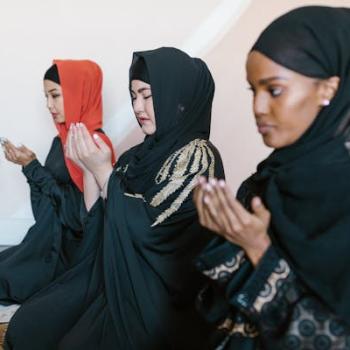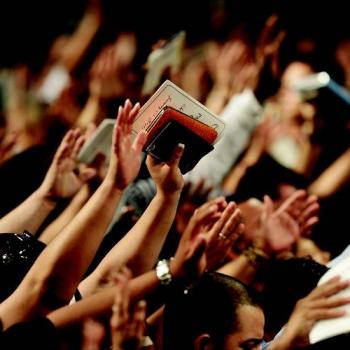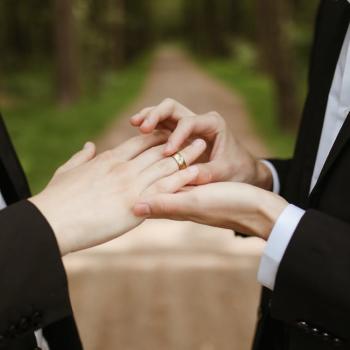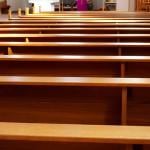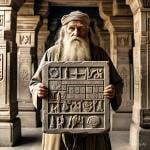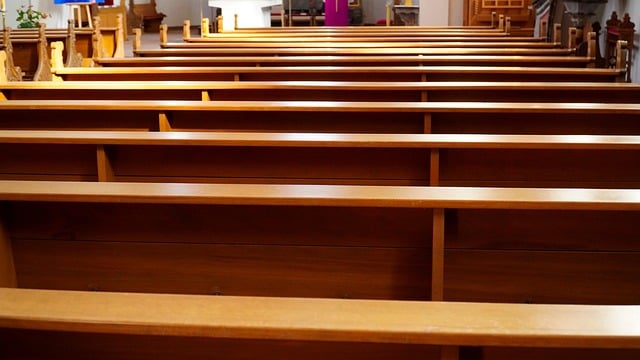
THE RELIGION GUY’S ANSWER:
Let’s say you are looking for a local church to join and perhaps with good religious grounding for your kids. You’d probably be confident if the pastor says “I know God really exists and I have no doubts about it.” In the important new National Survey of Religious Leaders (NSRL) reported last week, that wording was affirmed by 97% of “evangelical” Protestant pastors, 98% of the Black Protestants, and 96% of Catholic priests — but only 68% of “mainline” Protestant clergy.
Similarly, go back to 2019 and the major survey of U.S. church members between ages 20 and 30, reported in “The Twentysomething Soul.” Only half of the respondents who were mainline Protestants believed in the biblical God, a “personal being, involved in the lives of people today,” while 40% thought instead of a vague and impersonal “cosmic life force.”
The NSRL from Duke University is the most comprehensive survey of American clergy in years. It offers elaborate data from a random sample of 1,600 clergy whose local congregations fell into these categories: 43% “evangelical or conservative” Protestant, 22% Black Protestant, 21% “mainline or liberal” Protestant, 6% Catholic (the church’s parish memberships are far bigger than for most Protestants), 4% Jewish, and 4% for other religions.
Duke’s numbers raise the possibility that fuzziness on faith is a cause, or the primary cause, of what political scientist Ryan Burge calls the “stunning collapse” of mainline Protestantism. That phrase appears in the chapter on the mainline in his important new book “The American Religious Landscape: Facts, Trends, and the Future” (Oxford University Press).
Unofficial establishment
Not long ago, these like-minded denominations exercised outsize collective influence as the nation’s unofficial religious establishment. Historian James Hudnut-Beumler estimates that 52% of Americans were aligned with mainline churches as of 1958. After unprecedented and inexorable shrinkage in numbers and vitality, they claimed only 10% by 2021. Barring a miracle, Burge (who himself led a recently disbanded mainline congregation) projects that this wing of U.S. Christianity “will largely disappear” over the coming decades. Conservative evangelicalism has grown steadily since 1958 but lately also posts some declines.
“Mainline” refers to Protestant groups that originated in Colonial times or the early Republic, have mostly white and relatively well-off memberships, and allow a flexible approach toward historical Christian teachings. A handy definition is to list the predominantly white Protestant denominations affiliated ecumenically with the National Council of Churches and World Council of Churches, such as the American Baptist Churches, Christian Church (Disciples of Christ), Episcopal Church, Evangelical Lutheran Church in America, Presbyterian Church (USA), United Church of Christ, and United Methodist Church. The evangelical movement consists of conservative denominations, notably the Southern Baptist Convention, and myriad independent congregations.
With the following NSRL data, keep in mind that mainline responses would be even more liberal were it not for minority evangelical factions that remain within these denominations, though in recent times many conservative members have drifted away or quit through organized schisms.
With Easter coming, it’s notable that the NSRL finds clergy in the same three categories (evangelical, Black, Catholic) “definitely” believe in the bodily resurrection of Jesus Christ by 99%, 97% and 92% respectively, but the mainline Protestant pastors are an outlier at only 65%. The same three “definitely” believe in heaven by 99%, 97%, and 99%, versus 64% for mainliners. And they “never” have doubts about their faith by 76%, 89%, and 73%, versus the mainliners’ slim 35%.
“Do not apply today”
On the Bible, 88% of both evangelical and Black clergy consider it either “the actual word of God” taken “literally word for word,” or else “the inspired word of God, without errors” with some material “meant to be symbolic.” Most of the mainliners (72%) chose a different option in which the Bible is “the inspired word of God,” but “not all of it is historically accurate” and some culture-bound parts “do not apply today.” (Among Catholic priests, 58% preferred that choice.) Belief in Adam and Eve as “historical people” is “definitely” affirmed by 87% of evangelicals and 92% of Blacks, but only 25% of mainliners (and 17% of Catholics).
Asked whether it’s “important” to try to persuade followers of other religions to accept Christianity, 82% of evangelicals agree versus 35% for the mainline, with Blacks and Catholics in between. The most suggestive number might be that 77% of mainline clergy say they pray privately on a daily basis (apart from worship services or grace at meals), compared with 92%, 95% and 96% with the other categories.
Incidentally, the Black Protestants stood out with a 57% majority “definitely” believing God bestows wealth and health “to those with enough faith,” the so-called “prosperity Gospel” that’s accepted by only 25% of U.S. clergy as a whole. Many Bible-believing evangelicals brand this as error or outright heresy.
Instead of doctrine and devotion, media coverage of mainline Protestantism has focused largely on the change to liberal LGBT policies. No surprise, 71% of mainline clergy now favor opening all church offices “regardless of sexual orientation” and 60% would “definitely or probably” conduct same-sex weddings, compared with 4% and 2% for evangelicals. Black pastors are a bit more liberal than evangelicals while Catholics fall between the two Protestant poles. Despite toleration in the culture, conservatives who hold to traditional moral teaching have apparently suffered less for this (so far) than might be expected.
Non-political evangelicals
Turning to politics, Duke reports a surprising fact also seen in its prior and related surveying of U.S. religious congregations: Though certain visible evangelicals promote partisan causes on the national level, local evangelical pastors over-all are the least politicized of the four major Christian categories, far less likely than the others to urge activism, organize political groups, lobby legislators, or join demonstrations.
Potential mainline weakness stands out on one question. Asked how their own political views compare with those of their members, 20% of mainline clergy said they are “much more liberal” and 32% said “somewhat more liberal” for a combined 52% mismatch. That compares with a 12% gap with the evangelicals, 15% with Blacks and 34% with Catholics.
By the way, the full clergy sample including non-Christians displayed a close political split, identifying by 45.7% who are either strong, not very strong, or independents leaning Democratic, versus 43.4% for Republicans. On general ideology, 43% said they were either conservative or “extremely” conservative, and 18.3% liberal or “extremely liberal,” with others in between.
Finally, science. Black clergy exceeded those in other categories in opposing change of beliefs to fit “new scientific findings.” On creation and evolution, evangelicals (97%) and Blacks (86%) heavily affirmed the belief that “God directly created humans through a miraculous process,” compared with 54% of mainline Protestants and 45% of Catholics. Surprisingly strong evangelical (75%) and Black (73%) majorities held the literalistic belief that “God created the world in six 24-hour days.”
The full NSRL “Clergy in America” report is posted at www.nationalsurveyreligiousleaders.org/publications/overviews/



